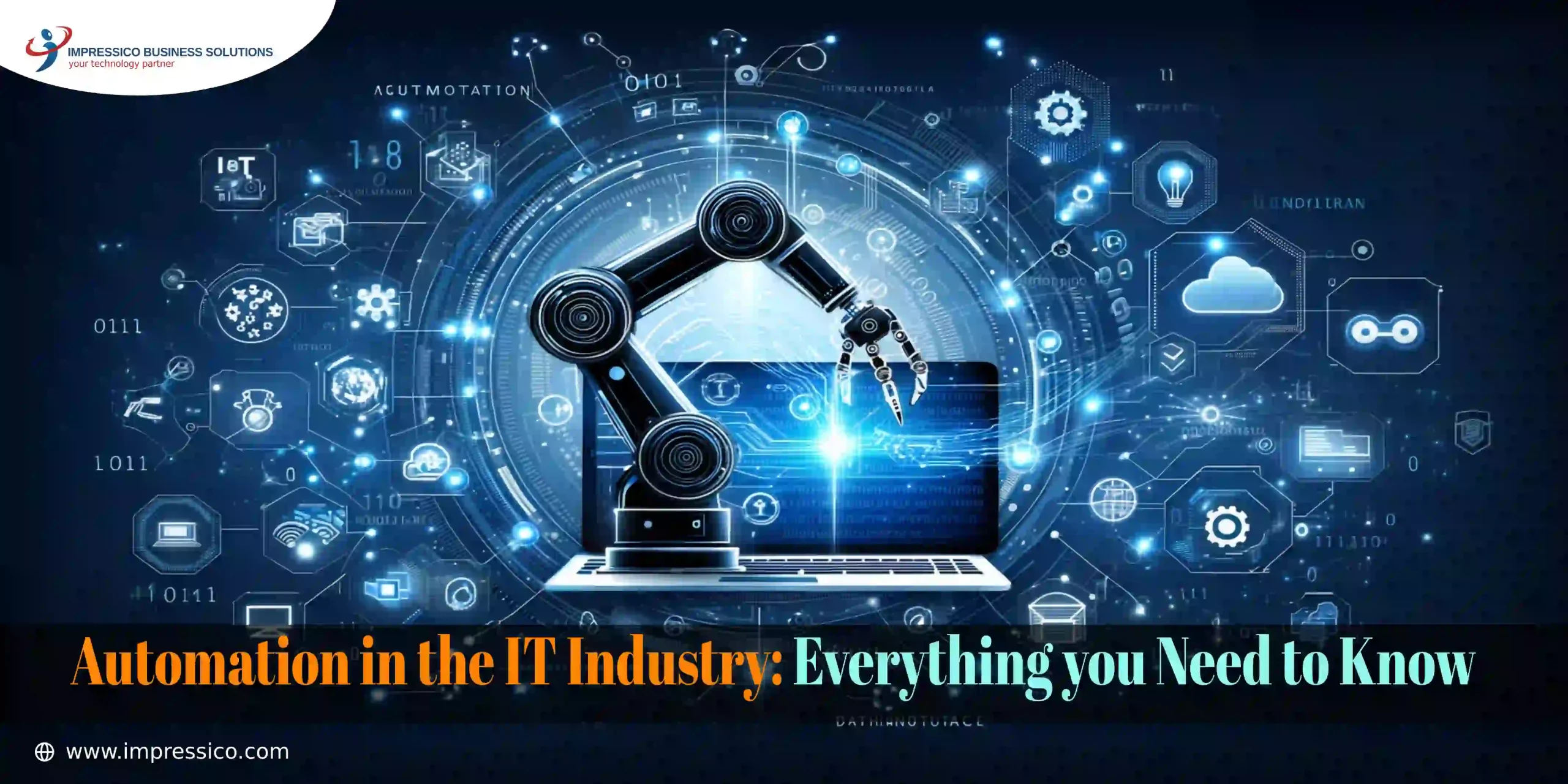Automation in the IT Industry: Everything you Need to Know

The relentless march of technology has brought us to the threshold of a new digital frontier: the realm of automation. Encompassing diverse sectors from IT to manufacturing and defense, automation has revolutionized the way processes are carried out. Particularly in IT, automation translates into software and systems designed to execute tasks with minimal human intervention, thereby streamlining operations across the board.
Automation is technology to make the process automatic. It employs in various fields such as IT, manufacturing, defence.
What is IT Automation?
IT automation is the process of developing software and systems to replace repetitive activities and minimize manual intervention. It speeds up the supply of IT infrastructure and applications by automating manual operations that used to require human intervention. An IoT solutions company help in empowering smart living by connecting different devices.
What is the purpose of IT Automation?
IT automation can help IT workers keep up with the growing volume and complexity of IT operations and cloud infrastructure by replacing time-consuming jobs. Even a large and devoted team cannot manage the speed and scale of services in today’s IT world.
IT automation software can handle vivid IT operations and procedures, from the most basic to the most sophisticated. Recent IT automation developments include artificial intelligence and machine learning to construct smarter applications that deal with more volatile conditions. Also, IoT solutions and services provide IoT solutions to make a smart system.
Applications of IT Automation
Automation’s potential applications are practically limitless, but some of the most popular ones are as follows:
- Automation in the cloud
- Provisioning of resources
- Configuration
- Network administration
- Automation of security (such as monitoring and response)
Benefits of IT Automation
Cost savings include lowering infrastructure costs through resource optimization and lowering expenses associated with human error.
-
Time savings:
By automating the most time-consuming and repetitive operations, IT employees can devote more time to higher-level work.
-
Faster operations:
IT automation can significantly accelerate data centre and cloud operations, decreasing service and resource delivery times from weeks to hours.
-
Reduced errors:
Automation maintains uniformity on a big scale, which is impossible to do with people completing activities manually.
-
Better security:
Because automated operations require fewer individuals to examine and preserve sensitive information, the risk of a breach reduces.
It may be fascinating to automate and enjoy its benefits but be careful while choosing what to automate. Automation in IT benefits the business domain as well. An Internet of Things (IoT) services company helps in the collection and intelligent use of data from physical devices for process automation and economic intelligence.
Customized Generative AI Services
Custom Generative AI services are an extension of this automation paradigm, harnessing advanced algorithms to not only automate tasks but to create and innovate. From developing new software solutions to designing intricate systems, Generative AI services can produce original outputs that push the boundaries of traditional automation.
Generative AI Development Consulting
At the core of these services lies Generative AI development, which involves tailoring AI models to specific organizational needs. This process can include programming AI to generate predictive analytics, automate complex decision-making processes, or craft unique customer experiences, all while seamlessly integrating with existing technological infrastructures.
Conclusion for the IT Automation
In essence, the advent of IT automation and Generative AI services marks a significant milestone in our technological journey. As these tools become increasingly sophisticated, they promise to usher in an era of unprecedented efficiency and innovation. However, the key to unlocking their full potential lies in thoughtful implementation, ensuring that they serve to augment human capabilities and foster progress.
FAQ’s Related to IT Automation Services and Solutions
What is IT automation and why is it important?
IT automation refers to using software to create repeatable instructions and processes to replace or reduce human interaction with IT systems. It’s important because it increases efficiency, reliability, and speed, and reduces errors in the management and operation of IT systems.
How does automation impact the speed and reliability of IT services?
Automation streamlines processes, reducing the time required to complete tasks. It also minimizes human error, enhancing the reliability of IT services.
What are some common applications of IT automation?
Common applications include cloud computing, resource provisioning, configuration management, network administration, and automated security monitoring.
How does automation contribute to cost savings in IT operations?
It lowers infrastructure costs through efficient resource use and reduces expenses linked to human errors.
Can automation improve IT security?
Yes, by implementing consistent and repeatable processes, it reduces the risk of breaches and enhances overall security posture.
What role do AI and machine learning play in IT automation?
AI and ML enable smarter automation that can predict outcomes, adapt to changing environments, and handle complex decision-making.
How should companies prepare their workforce for an automation-driven industry?
Companies should invest in training and development programs to upskill their workforce, ensuring employees can work alongside automated systems and focus on higher-level tasks.